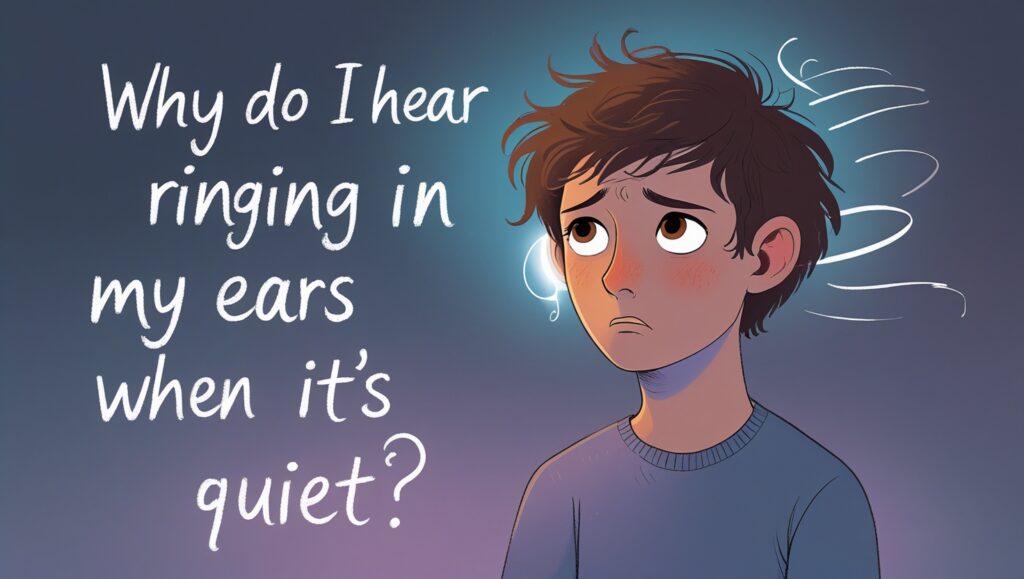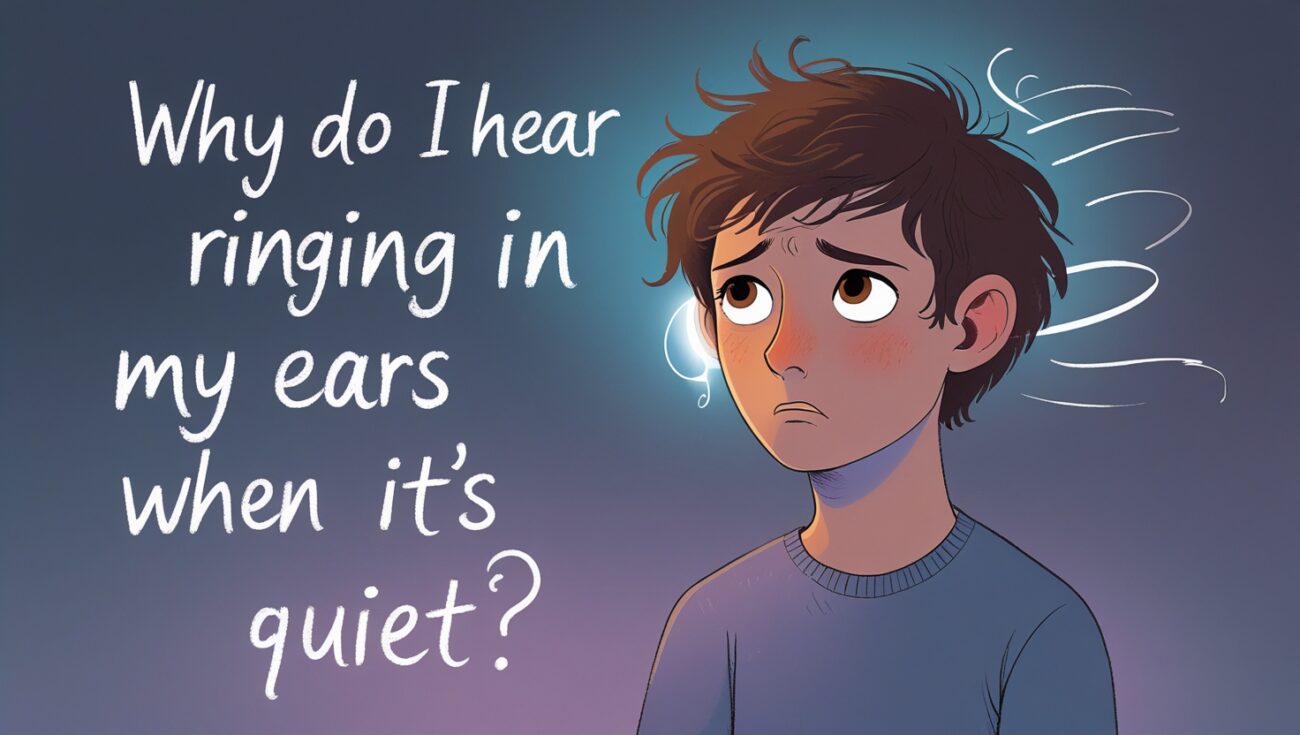Why Do I Hear Ringing in My Ears When It’s Quiet?
When my tinnitus first started, I noticed it the most when everything around me was quiet.
I’d be sitting in a calm room, trying to relax or fall asleep — and there it was: that constant ringing in my ears. It drove me crazy, and I kept asking myself:
“Why do I hear ringing in my ears when it’s quiet?”
Now that I’ve done a lot of research, worked with natural remedies like Quietum Plus, and learned how to manage my symptoms, I finally understand what’s going on — and what helps.
If you want to support your ear health naturally, here’s what I use every day:
Quietum Plus — Official Site

Table of Contents
It’s All About the Brain
Here’s what I learned:
When you’re in a quiet environment, your brain isn’t getting much sound input from the outside world.
So it starts to “turn up the volume” — and in people with tinnitus, that means your brain starts noticing the internal sounds (like ringing, buzzing, or hissing) more.
That’s why tinnitus often feels louder at night — because there’s no background noise to distract you.
It’s Linked to Hearing Loss
In many cases, tinnitus is linked to hearing loss — even mild or hidden loss. When your ears aren’t sending certain sounds to the brain, your brain tries to compensate — which can trigger the perception of ringing.
For me, a little bit of noise-induced hearing damage was enough to cause the problem.
Stress Makes It Worse
I also noticed that when I was stressed, the ringing was even louder in quiet moments. That’s why calming my nervous system became a huge part of my routine — and why Quietum Plus (with herbs like ashwagandha) really helped me feel better.
What Helped Me
Here’s what helped me manage that awful ringing in quiet moments:
✅ Using soft background noise (white noise, rain sounds)
✅ Managing stress through stretching, walking, breathing
✅ Staying hydrated
✅ Supporting my ears and nerves daily with Quietum Plus
✅ Improving my sleep hygiene
Final Thoughts
If you’re asking yourself: “Why do I hear ringing in my ears when it’s quiet?” — now you know. It’s about how the brain responds to silence — especially when the hearing system is a little out of balance.
But the good news is — you can absolutely improve it. For me, adding Quietum Plus and some simple daily habits made a HUGE difference.
Here’s what I use every day to support my hearing health:
Quietum Plus — Official Site
I also realized that late at night — when everything is quiet and there’s no distraction — my brain seems to “zoom in” on the tinnitus even more. That’s why soft background noise helps so much.
When I first started taking Quietum Plus, I wasn’t sure if it would help with those quiet moments — but over a few weeks, I noticed that the ringing wasn’t as sharp or loud anymore.
I also learned that poor sleep makes the brain more sensitive — and after a bad night, my ear ringing always seemed louder the next day, especially in quiet moments.
That’s why I focused so much on improving my sleep — things like winding down earlier, using calming essential oils, and of course staying consistent with Quietum Plus.
Another thing I noticed: dehydration made my tinnitus worse. Now I make sure to drink water throughout the day — and that helps keep the ringing down at night.
I also switched up my diet to include more anti-inflammatory foods — leafy greens, berries, omega-3s — and that seemed to help my ear health over time.
Of course, none of this would have been as effective without my daily dose of Quietum Plus — that’s been the foundation of my progress.
I also tell my friends that getting out in nature helps — walks in the park, listening to natural sounds — it’s calming for the nervous system, which helps with tinnitus.
Another habit that helped: giving my brain something to focus on during quiet times — like a podcast or an audiobook — so it doesn’t latch onto the ringing.
I also stopped using earbuds for long periods — those were definitely making my tinnitus worse when everything went quiet.
Since starting this routine — Quietum Plus, good sleep, hydration, soft background noise — my “bad days” with ringing have become fewer and farther between.
One thing I wish I had known earlier is that stress is a huge trigger — the more you can manage stress, the quieter your tinnitus will become over time.
Using breathing techniques during the day also helped keep me calm — which made those quiet moments at night much easier to handle.
Now I also avoid caffeine in the late afternoon — I noticed that made the ringing louder at night when everything was quiet.
Having a consistent morning and evening routine helped as well — and taking Quietum Plus every morning became part of that.
The most important thing I learned is that you can train your brain — with the right habits and support — to not focus on the ringing so much during quiet times.
If you’re dealing with this too, don’t give up — with time, patience, and natural support like Quietum Plus, it absolutely can get better.
One simple trick that really helped me in those quiet moments was to use a small white noise machine in my bedroom. Even at a low volume, it helps cover the ringing so my brain doesn’t focus on it as much.
I also realized that screen time late at night made my tinnitus feel worse when it was quiet — so now I shut off screens at least an hour before bed and read instead.
Of course, sticking with Quietum Plus daily has made the biggest difference — I noticed that after a few weeks, the ringing wasn’t as sharp or distracting during those silent moments.
I also make sure to stretch my neck and jaw before bed — I learned that muscle tension can sometimes trigger louder tinnitus when it’s quiet.
If you’re just starting your tinnitus journey, my biggest advice is: be patient with yourself, stay consistent with natural support like Quietum Plus, and create a calming routine around those quiet moments.

